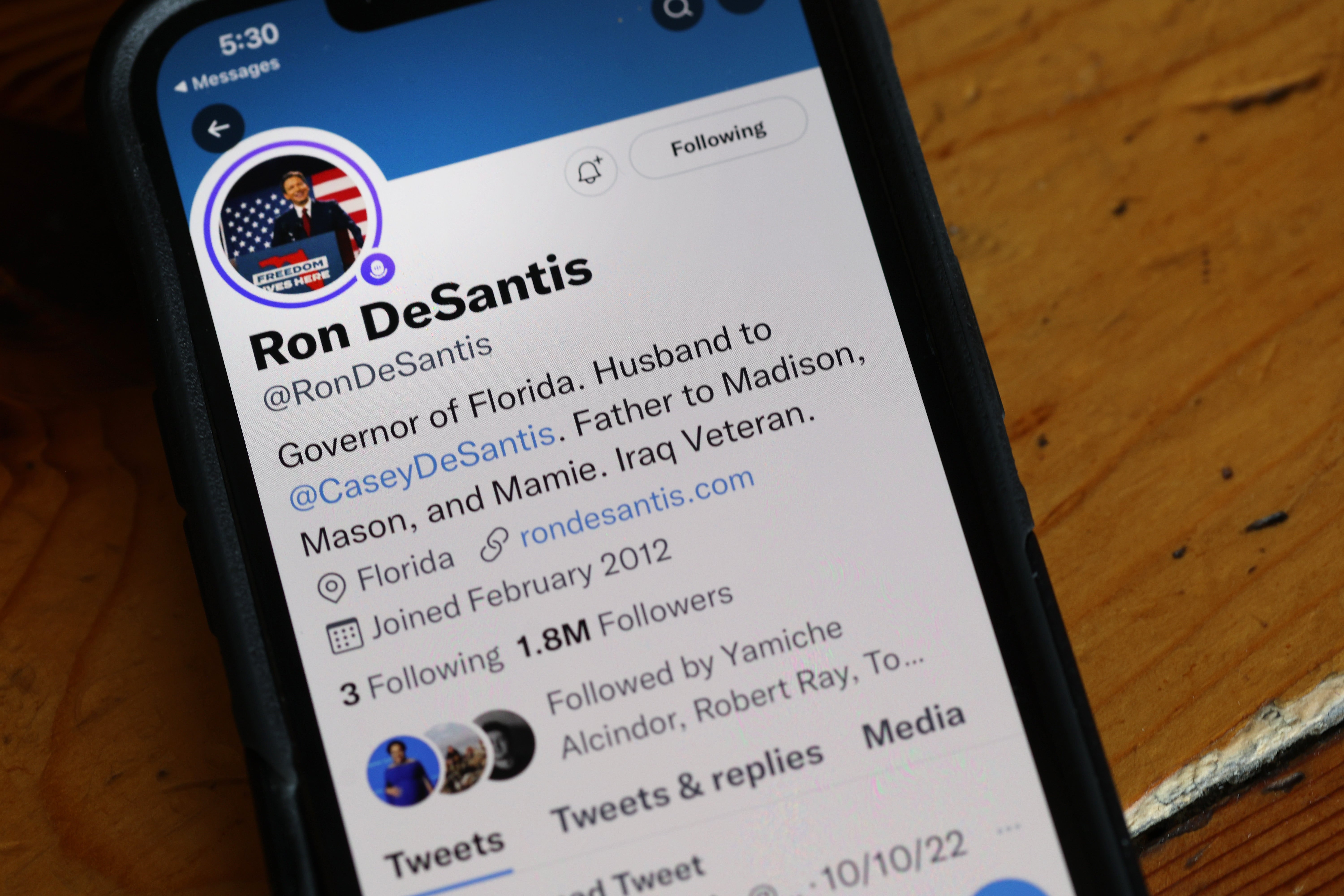For a Florida man, Ron DeSantis is pretty bad at ‘feeding the alligators’
DeSantis’s aggressive approach to the media might work in Florida. It will fall flat on the campaign trail


Your support helps us to tell the story
From reproductive rights to climate change to Big Tech, The Independent is on the ground when the story is developing. Whether it's investigating the financials of Elon Musk's pro-Trump PAC or producing our latest documentary, 'The A Word', which shines a light on the American women fighting for reproductive rights, we know how important it is to parse out the facts from the messaging.
At such a critical moment in US history, we need reporters on the ground. Your donation allows us to keep sending journalists to speak to both sides of the story.
The Independent is trusted by Americans across the entire political spectrum. And unlike many other quality news outlets, we choose not to lock Americans out of our reporting and analysis with paywalls. We believe quality journalism should be available to everyone, paid for by those who can afford it.
Your support makes all the difference.Back in the day, former House Speaker John Boehner called his regular press conferences the “weekly alligator feeding” and said, “The goal is to feed the alligators without being bit.” That meant giving the press just enough of what they needed, helping set the narrative, but not giving so much chum that they would wind up tearing him up in their articles and reports.
Mr Boehner, a classic retail politician and dealmaker from Cincinnati who puffed cigarettes and sipped Merlot, enjoyed a good back-and-forth, which endeared him to reporters.
All the while, a group of firebreathing conservatives that became the House Freedom Caucus tormented Mr Boehner to the extent that, eventually, he decided to call it quits and ride off into the sunset in 2015.
One of those members was Ron DeSantis. But given Mr DeSantis’s poor initial launch of his presidential campaign, with his disastrous Twitter Spaces event with CEO Elon Musk, and Donald Trump firing a barrage of barbs against his former protege, one might think Mr DeSantis should have made the trek to Mr Boehner’s office to discuss how to deal with the press so they don’t eat him alive as he seeks the presidency.
For the most part, Mr DeSantis has benefited from the fact that Florida’s Democratic Party is little more than window dressing. Despite only narrowly losing the governorship in 2018, the state Democratic Party has completely collapsed.
As a result, Mr DeSantis has taken his fight to the press. When the media criticised him for keeping the state open during the Covid-19 pandemic, he berated a reporter, saying, “Part of the reason is that because you got a lot of people in your profession who waxed poetically for weeks and weeks about how Florida was going to be just like New York, wait two weeks and Florida’s going to be next just like Italy, wait two weeks. Well hell, we’re eight weeks away from that and it hasn’t happened.”
Similarly, he’s referred frequently to media that is not conservative as the “regime media.” This has allowed Mr DeSantis to remain cloistered from any major scrutiny. He has felt little need to engage with mainstream reporters.
Furthermore, whereas most politicians’ press teams remain mostly anonymous, Mr DeSantis’s team of flacks have earned reputations in their own right not just for promoting their boss, but also for actively picking fights with reporters for any (perceived or real) slights against the principal.
This might explain why Mr DeSantis thought launching his campaign on Twitter would be a brilliant idea. Doing so would circumvent the typical scrutiny that other presidential candidates face. Senator Tim Scott (R-SC) has floundered when asked about abortion, and Nikki Haley’s aggressive courting of the press has done little to improve her standing in the polls. So why not avoid gators and save getting teeth marks on your skin and cozy up with one of the richest men in the world? But doing so comes at a cost.
In addition, the more that a candidate tends to engage with the press, the less antagonistic reporters might be toward them. Plenty of presidential campaigns – from John McCain’s come-from-behind run in the 2008 GOP primary to Pete Buttigieg’s upstart campaign in 2020 – thrived largely because they said “yes” to nearly every media inquiry. Donald Trump capitalized on the same access in 2016.
While the press doesn’t play favourites, a lack of contact can lead to hostilities that colours the coverage. Similarly, as much as Republicans may not like to believe it, the press is a vessel for real Americans’ concerns, and avoiding them means candidates don’t know what the top issues are for them.
Of course, Mr DeSantis’s official campaign is less than a day old. He could very easily right the ship. But if he continues to be siphoned off, he might not be ready for the deluge of gators on the campaign trail who keep demanding more and more and ultimately bite off an arm or a leg.



Join our commenting forum
Join thought-provoking conversations, follow other Independent readers and see their replies
Comments